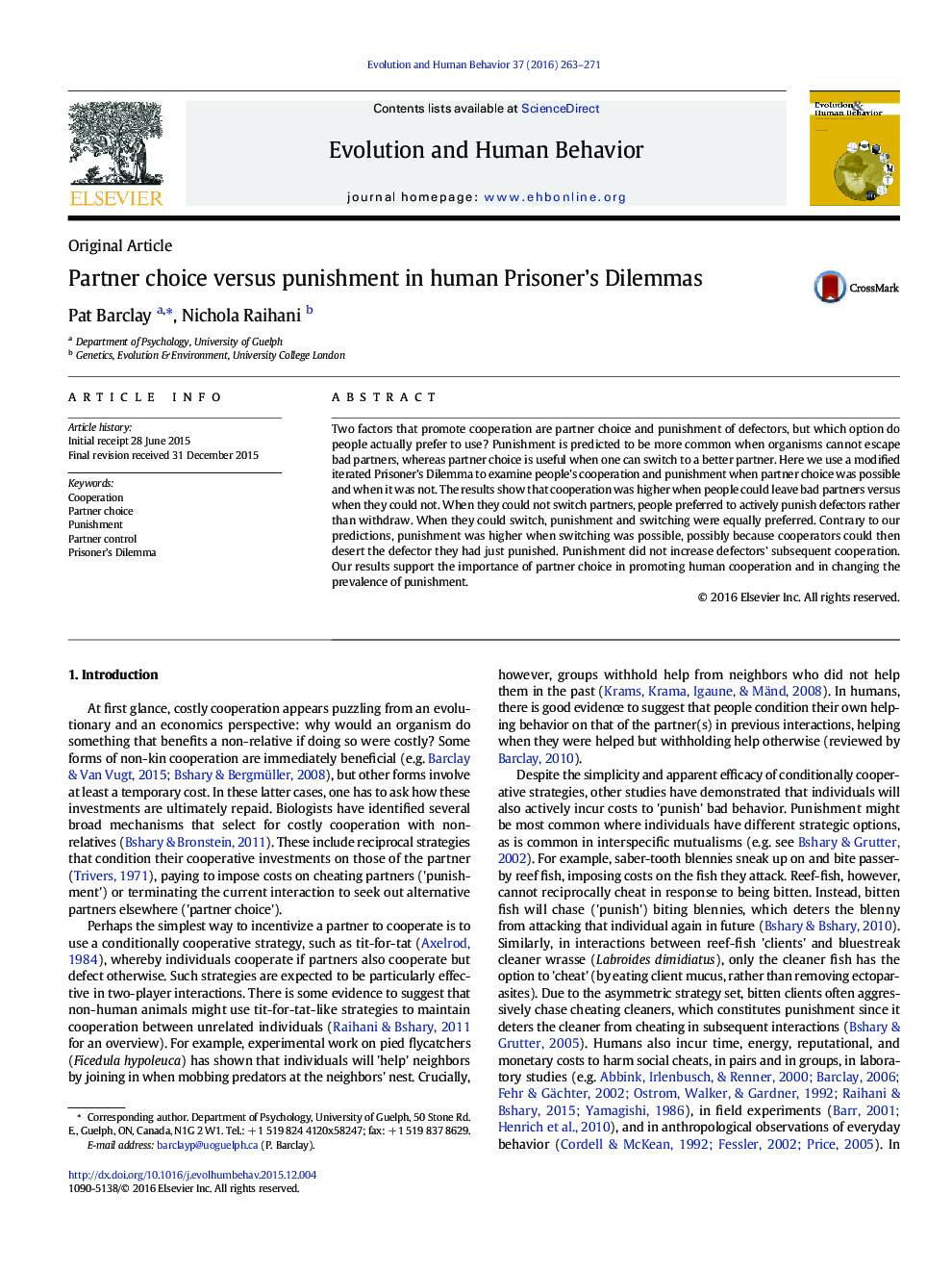| Article ID | Journal | Published Year | Pages | File Type |
|---|---|---|---|---|
| 943119 | Evolution and Human Behavior | 2016 | 9 Pages |
Two factors that promote cooperation are partner choice and punishment of defectors, but which option do people actually prefer to use? Punishment is predicted to be more common when organisms cannot escape bad partners, whereas partner choice is useful when one can switch to a better partner. Here we use a modified iterated Prisoner’s Dilemma to examine people’s cooperation and punishment when partner choice was possible and when it was not. The results show that cooperation was higher when people could leave bad partners versus when they could not. When they could not switch partners, people preferred to actively punish defectors rather than withdraw. When they could switch, punishment and switching were equally preferred. Contrary to our predictions, punishment was higher when switching was possible, possibly because cooperators could then desert the defector they had just punished. Punishment did not increase defectors’ subsequent cooperation. Our results support the importance of partner choice in promoting human cooperation and in changing the prevalence of punishment.
